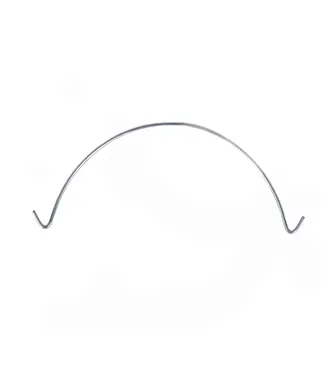-
 Phone:
Phone: -
 Email:
Email:

barbed wire fence cost
Understanding the Costs of Barbed Wire Fencing
Barbed wire fencing is a popular choice for a variety of applications, from agricultural to security, due to its durability and cost-effectiveness. When considering the installation of a barbed wire fence, it is essential to understand the various factors that influence the overall cost. This article will explore these factors and provide you with insight into estimating the expenses associated with barbed wire fencing.
Material Costs
The primary expense in building a barbed wire fence is the cost of materials. The price of barbed wire itself can vary significantly depending on the quality and type. Generally, the cost ranges from $0.05 to $0.15 per linear foot for standard products. Higher-quality wires or those designed for specific applications, such as extra strength or galvanized coatings, can cost more. Additionally, other materials such as fence posts, braces, and connectors must be included in the overall cost. Wooden posts typically range from $3 to $10 each, while metal posts can cost between $4 and $15 per post, depending on the style and durability.
Labor Costs
Labor is another significant factor in the overall cost of installing a barbed wire fence. If you choose to hire professionals, the installation fees can vary based on the geographic location and the complexity of the job. On average, labor costs can range from $1 to $3 per linear foot. For a DIY enthusiast, while you can save on labor costs, keep in mind that installation requires specific tools and expertise, which may lead to a steeper learning curve and potential mistakes.
Fence Length and Terrain
barbed wire fence cost

The total length of the fence you need to install plays a crucial role in determining costs. Longer fences will naturally require more materials and labor, resulting in increased expenses. Additionally, the type of terrain where the fence will be installed affects the cost. Rocky, uneven, or heavily vegetated areas may require additional post removal, ground preparation, and specialized tools, increasing labor costs.
Accessories and Add-ons
The cost of barbed wire fencing can also be influenced by various accessories and add-ons. Gates, which can range from $100 to over $1,000, will add to the overall expenses. Other optional features such as electric fencing integration, additional strands of wire for enhanced security, or protective coatings can also affect the total budget.
Maintenance Costs
Lastly, it’s important to consider the long-term maintenance costs. Barbed wire fences require periodic inspections and upkeep to ensure they remain in good condition. If the wire becomes damaged or rusted, repairs or replacement will be necessary, adding to future costs. Regular maintenance can help minimize these expenses and extend the lifespan of the fence.
Conclusion
In summary, the cost of barbed wire fencing can vary widely based on several factors, including material quality, labor, fence length, terrain, and any additional features. On average, homeowners should expect to spend anywhere from $1,000 to $3,000 for a typical installation in the United States, depending on the specifics of their project. By understanding these components, you can better plan your budget and investment in barbed wire fencing, ensuring it meets your needs for security, livestock management, or property delineation.
-
Wire Mesh for Every Need: A Practical SolutionNewsJul.25,2025
-
Steel Fences: Durable, Secure, and Stylish OptionsNewsJul.25,2025
-
Roll Top Fencing: A Smart Solution for Safety and SecurityNewsJul.25,2025
-
Cattle Farm Fencing Solutions for Maximum SecurityNewsJul.25,2025
-
Affordable Iron Binding Wire SolutionsNewsJul.25,2025
-
Affordable Galvanized Wire SolutionsNewsJul.25,2025
-
Wire Hanger Recycling IdeasNewsJul.25,2025








